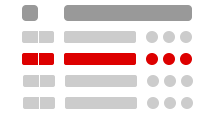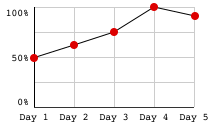In this lesson, we will focus on integrating rational functions which requires the use of partial fraction decomposition. Once the fraction has been split into smaller pieces, then it will be easier to integrate. Just make sure that the question really requires partial fractions before using this method. First, we will take a look at fractions where the denominator is a product of linear factors with no repeats. Second, we will take a look at the case where the denominator does have linear factors with repeats. Third, we will tackle more advance questions where we have quadratic factors which cannot be factored into linear factors, but has no repeats. Lastly, we will look at the hardest type of partial fractions question, where the denominator has irreducible quadratic factors AND repeats. In the end, we will take a look at questions which involves performing long division before we can use partial fraction decomposition.
NOTE: 4 cases of partial fraction decomposition:
CASE 1: Denominator is a product of linear factors with no repeats.
i.e.
CASE 2: Denominator is a product of linear factors with repeats.
i.e.
CASE 3: Denominator contains irreducible quadratic factors with no repeats.
i.e.
CASE 4: Denominator contains irreducible quadratic factors with repeats.
i.e.
CASE 1: Denominator is a product of linear factors with no repeats.
i.e.
CASE 2: Denominator is a product of linear factors with repeats.
i.e.
CASE 3: Denominator contains irreducible quadratic factors with no repeats.
i.e.
CASE 4: Denominator contains irreducible quadratic factors with repeats.
i.e.






